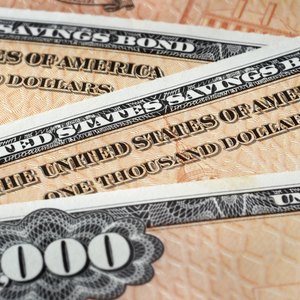
Conventional wisdom states that bonds and bond funds should be avoided during periods of rising interest rates. The reason is straightforward: higher interest rates make existing bonds less attractive because of their relatively small interest rates. Thus, rising rates hurt the prices of fixed-rate bonds and bond funds. Bond yield-to-maturity, or total return, moves opposite to price, so lower prices are needed to boost the yields of older bonds to keep them competitive. Bond fund investments may be riskier than holding individual bonds when rates rise.
Bond Funds
Bond funds are structured as mutual funds or exchange-traded funds. Open-end mutual funds dynamically create and destroy shares as investors join or exit the fund. Purchases and redemptions occur after the bond market closes, so intra-day trading is unavailable. Some funds charge commissions, known as loads, to buy or sell shares. Exchange-traded bond funds trade like stocks, with each share representing ownership in a basket of bonds tied to a bond index. Like stocks, they can be bought and sold whenever the stock market is open. Brokers typically charge stock-type commissions on the purchase or sale or ETFs. Closed-end mutual funds are similar to ETFs, except they are not tied to an index and they can borrow money to increase their holdings.
Holding Periods
When bond prices fall, you can hold individual bonds to maturity and avoid a capital loss, because bonds return their face value when they mature. Temporary, market-driven changes in price have no impact if you hold until maturity. Bond funds have no maturity date, so there is no promise that you will get your money back. In fact, in a rising interest rate environment, bond fund share prices can fall and may never rise back to the price you paid.
With bond funds, you also have no control over how long bonds will be held. Fund managers can sell bonds anytime and thus potentially lock in losses. Of course, bond funds offer diversification, which lowers default risk compared to holding a few bonds on your own.
Good Times to Buy
Stable or falling rate environments are good times to buy bond funds, because investors will not suffer from capital losses due to lower prices. Even though falling interest rates will eventually cut your monthly interest income, you will be compensated with higher bond prices. Stable rates ensure stable prices, no matter what the actual level of interest rates is. In a stable rate environment, bond fund managers may attempt to increase returns by investing in slightly riskier bonds.
Contrarian Timing
Opportunities abound in the bond market, even when interest rates are rising. Floating-rate bond funds buy debt instruments with variable interest rates. These bonds raise their interest rates to match prevailing rates, so their prices are quite stable in all environments. Another contrarian option is a bond fund composed of Treasury inflation-protected securities. TIPS gain value during inflationary periods, which usually coincide with rising rate environments. The Treasury increases the face values of TIPS whenever the Consumer Price Index rises, keeping you one step ahead of inflation.
Inverse Bond Funds
Through the use of sophisticated trading vehicles like options and futures, inverse bond funds move in the opposite direction of regular funds. Rising rates actually boost the prices of inverse bond funds. For aggressive investors, leveraged inverse bond funds can double or triple the inverse return. Of course, the increased potential for return is matched by a leap in riskiness, so leveraged funds are only for the most aggressive bond investors. Inverse funds are structured as exchange-traded funds.
References
- The National Bureau of Economic Research: Measuring the Timing Ability and Performance of Bond Mutual Funds
- FINRA: Bonds
- Schwab: Should You Hold Bonds of Bond Funds When Interest Rates Rise?
- Vanguard. "What Is a Bond?" Accessed April 30, 2020.
- PIMCO. "What Affects the Price and Performance of Bonds?" Accessed April 30, 2020.
- Morningstar. "How Do Interest Rates Affect Your Bonds?" Accessed April 30, 2020.
- Corporate Finance Institute. "Junk Bonds." Accessed April 30, 2020.
- Morningstar. "NAV." Accessed April 30, 2020.
Writer Bio
Eric Bank is a senior business, finance and real estate writer, freelancing since 2002. He has written thousands of articles about business, finance, insurance, real estate, investing, annuities, taxes, credit repair, accounting and student loans. Eric writes articles, blogs and SEO-friendly website content for dozens of clients worldwide, including get.com, badcredit.org and valuepenguin.com. Eric holds two Master's Degrees -- in Business Administration and in Finance. His website is ericbank.com.

